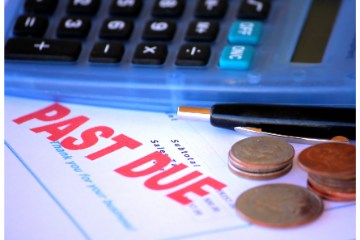
In the Netherlands, collection costs are governed by the Law on Regulation of Extrajudicial Collection Costs (WIK). Before levying these costs, a 14-day settlement reminder is required by law. The WIK also sets a cost limitation to protect consumers and sole proprietors from excessive charges. The costs decrease with increasing debt amounts, and they’re determined by a graduated scale. In case of corporate claims, the law allows a certain deviation. You’ll find it invaluable to understand how these costs are calculated under Dutch law and the prevention strategies for non-payment, particularly if you’re operating a business in the Netherlands.
Key Takeaways
- Dutch Law on Regulation of Extrajudicial Collection Costs (WIK) sets limitations on collection costs.
- A graduated scale, based on the payment range, determines collection costs.
- Before levying collection costs, a 14-days reminder letter is mandatory under Dutch law.
- For corporate claims, a deviation allowance applies under directory law.
- A legal maximum for compensation agreement is set unless both parties agree otherwise.
Understanding Collection Costs under Dutch law
Let’s explore understanding Netherlands debt collection costs under Dutch law, which is designed to protect consumers and sole proprietors from unreasonably high collection costs. This consumer protection is achieved through regulation, specifically the Law on Regulation of Extrajudicial Collection Costs (WIK). Here, cost limitations are set according to a graduated scale.
Now, if you’re dealing with payment defaults, don’t panic. The law mandates the issuance of a reminder letter, giving you an additional 14 days to settle the amount due, before any collection costs can be levied. This reminder must outline the potential consequences of failure to pay, including the compensation for collection costs.
But what if you’re a corporation? The law acknowledges corporate claims and allows a deviation allowance. It’s directory law for corporate claims, meaning that it’s permissible to deviate from the statutory regulation. However, a legal maximum is still in place for compensation agreement. Collection costs can only exceed this limit if both parties agree to it.
Legal Framework for Collection Costs in the Netherlands
Understanding the legal framework for collection costs in the Netherlands, you’ll find it’s designed to safeguard fairness and protect against excessive charges. This framework is built on the Law on Regulation of Extrajudicial Collection Costs (WIK). Its main purpose is consumer protection and it employs a graduated scale for calculating costs.
The legal implications of this framework are significant. When a payment default occurs, the WIK lays out the costs you’ll incur. It’s important to highlight it applies to claims to be paid after July 1, 2012. This guarantees you’re not trapped by laws that were outdated or unfair.
| Payment Range (€) | Collection Cost (%) | Legal Implications |
|---|---|---|
| 0 – 2,500 | 15 | Protects against excessive costs |
| 2,501 – 5,000 | 10 | Graduated scale for fairness |
| 5,001+ | 5 | Decreasing rate for larger debts |
Calculation of Collection Costs under Dutch Law
Understanding the calculation of collection costs under Dutch law, you’ll find a multi-tiered approach provides a fair and transparent system. This fee structure is designed to protect consumers and sole proprietors from excessively high collection fees during debt recovery, thereby setting legal limits on these costs.
From 1 July 2012, collection costs are calculated on a graduated scale based on the Law on Regulation of Extrajudicial Collection Costs (WIK) and the associated Decree. The first €2,500 of the claim attracts a 15% fee, with a minimum of €40. The next €2,500 has a 10% fee, followed by 5% on the next €5,000. For claims between €10,000 and €200,000, a 1% fee applies, and 0.5% on any amount above this, to a maximum of €6,775.
Before collection fees are incurred, a payment reminder, known as a 14-days letter, must be sent, giving you the opportunity to settle the debt within 14 days. The reminder must outline the consequences of non-payment, including the collection costs. Additional costs under different names, such as administrative costs or file expenses, are not permitted under this law.
Managing Late Payments by Dutch Debtors
With the intricacies of the Dutch debt collection system clear, it’s time to navigate the process of managing late payments by Dutch debtors. Your first steps in debt recovery are being proactive, sending reminders, and maintaining good communication with the debtor. Your financial management skills play a key role here, ensuring you keep track of all payments and debts.
In the case of persistent non-payment, consider implementing payment strategies like installment plans, which allow debtors to pay off their debt in manageable portions. This could increase the likelihood of full debt settlement.
Maintaining credit control is also essential. Monitor credit history and adjust credit terms based on payment performance. Remember, prevention is better than cure.
Below is a brief guide to help you manage late payments:
| Steps | Description |
|---|---|
| Debt Recovery | Proactive communication and reminders |
| Financial Management | Track all payments and debts |
| Payment Strategies | Consider installment plans |
| Credit Control | Monitor credit history, adjust credit terms |
| Debt Settlement | Aim for full debt settlement |
Prevention Strategies for Non-Payment in the Netherlands
To avoid the hassles of debt collection, it’s important to have strategies in place to prevent non-payment in the Netherlands. One effective method is by implementing a credit control system. This provides you with a real-time overview of your customers’ credit status, helping you manage risk and maintain a healthy cash flow.
Make sure you send out payment reminders promptly. It’s an amicable way of nudging your customers to settle their dues. Timely reminders not only speed up debt recovery but also maintain good relationships with your customers.
Cash flow is the lifeblood of any business. So, it’s crucial to keep it steady. One way is by setting clear payment terms and adhering to them. If a client continually fails to pay on time, consider imposing late payment penalties or even ceasing to do business with them.
Risk management is another important aspect. Regularly assess your clients’ creditworthiness to mitigate the risk of non-payment. If necessary, engage a professional debt collection agency to ensure your company’s financial health isn’t compromised by unpaid invoices. Remember, prevention is always better than cure, especially when it comes to non-payment.
Frequently Asked Questions
What if the Debtor Refuses to Pay the Collection Costs?
If you, as the debtor, refuse to pay collection costs, your legal protections kick in. Collection agencies may propose payment plans, but court interventions can occur if agreements can’t be reached.
Can Collection Costs Be Waived or Reduced in Certain Circumstances?
Yes, collection costs can be waived or reduced under certain conditions. If you’re facing financial hardship, legal leniency may apply. Cost exemptions, waiver conditions, and reduction possibilities all factor into the decision.
What Are the Legal Consequences of Not Paying Collection Costs in the Netherlands?
If you don’t pay collection costs in the Netherlands, you’ll face legal penalties. Debt enforcement may impact your credit rating, lead to bankruptcy consequences, or even trigger asset seizure. It’s important to settle your dues.
Are There Any Special Provisions for Collection Costs Involving International Transactions?
Yes, international regulations apply to cross-border collections. You’ve to follow specific collection strategies. Debt enforcement can have legal implications globally and varies depending on the country’s laws where the transaction occurred.
How Are Disputes About Collection Costs Resolved Under Dutch Law?
In disputes about collection costs, you’d typically engage in Dutch arbitration or legal mediation. Collection agencies might offer payment plans. If unresolved, statutory interest could be applied under Dutch law.
Conclusion
So, now you’ve got the lowdown on collection costs in the Netherlands. With a solid grasp of Dutch law, you’ll be equipped to handle late payments and calculate your costs accurately. Remember, prevention is key, so implement strategies to avoid non-payment. Don’t let unpaid bills disrupt your business – knowledge is power, and you’re now empowered to tackle collections head on. Good luck with your business ventures in the Netherlands!


